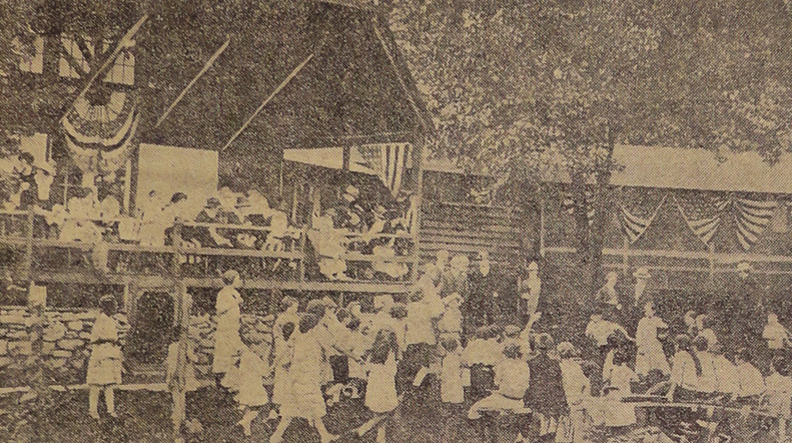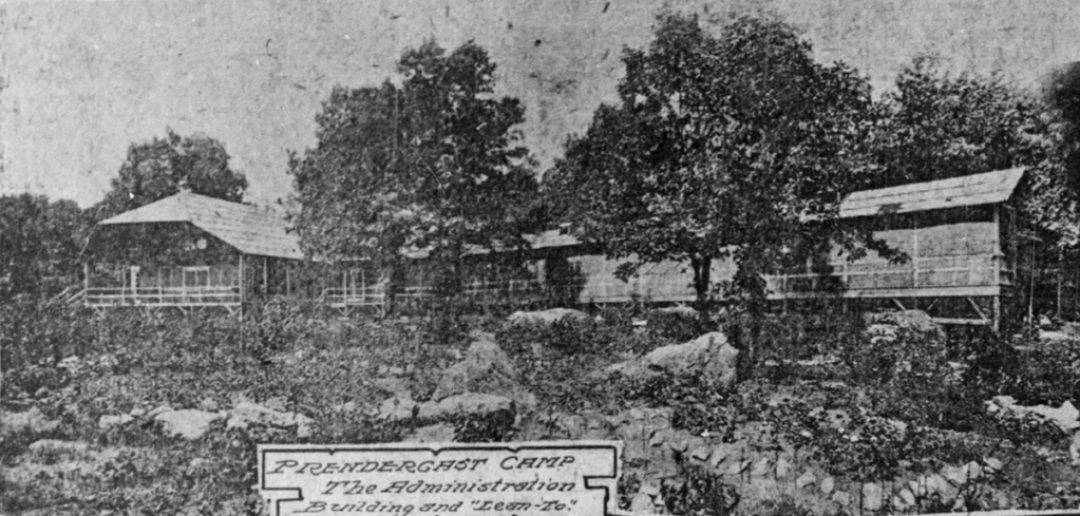No. 2462 Postcard. Prendergast Preventorium for Children., 1000 Harvard Street, Mattapan, Mass.
On March 24, 1882, Dr. Robert Koch announced the discovery of Mycobacterium tuberculosis, the bacteria that causes tuberculosis (TB). At that time, TB killed one out of every seven people living in the United States and Europe. Dr. Koch’s discovery was the most important step taken toward the control and elimination of this deadly disease. A century later, March 24 was designated World TB Day: a day to educate the public about the impact of TB around the world.
Until TB is eliminated, World TB Day won’t be a celebration. But it is a valuable opportunity to educate the public about the devastation TB can spread and how it can be stopped.
A theory emerged in the later 1800s that fresh mountain air and sunshine were helpful in controlling the disease. It was only in the 1950s that it was discovered that a cocktail of drugs could cure the disease in 80 to 90 percent of cases. Newer drugs have helped improve the rate and shortened the treatment period to 6 months.
Our local history includes the establishment of the Prendergast Preventorium at 1000 Harvard Street, Mattapan and other camps, notably at the Boston Consumptives Hospital at 249 River Street.


Prendergast Preventorium Excerpts from The Boston Globe, August 19, 1921
John and Helen O’Brien were two of the happy youngsters who passed yesterday it the open air at the Mattapan Prendergast Camp. Nature’s remedies, in adult doses, are the sole prescriptions.
A children’s party for 50 was held yesterday at the Prendergast Camp in the woods off Harvard St., Mattapan. Boston Tuberculosis Association was the host and primarily the party was a demonstration to bring public attention to the preventorium planned to be established at the camp as soon as the association can finance it. Dr. John B. Hawes, president of the association, says that Boston is 10 years behind the times because it has no preventorium. Since Boston has been the pioneer in every progressive project of tuberculosis care, cure and prevention, it is distinctly up to Boston to treat the situation properly.
Children from various parts of the city who are in homes where there are adult cases of consumption or who already show signs of a tuberculosis infection were the guests for the all day picnic.
Autos donated by various local motor companies transported the children to camp. Games and the facilities the camp affords for fun were enjoyed. On little girl discovered an excellent sliding place on the bulkhead from the cellar.
At noon a sumptuous repast was handed out. In the afternoon before they journeyed home they were each given a pint bottle of milk and a straw to convey the contents to the proper place. Another feature was a milk fairy, who entertained the children with stories about milk with moral lessons. Another feature was a tooth brush drill. Each child was given a tooth brush and then they all showed how much system they knew about “eight strokes up, down, etc.” There was a cracker-eating contest and then whistling, or–in case of girls–singing, to prove the crumbs were all “down.”
Prendergast Camp was begun 10 years ago as a lodging place for working men who were not free enough from consumption to sleep in their city homes. Later it developed into quarters for men on the waiting list for State sanatoria. Now that use is over and it is planned to use the camp as a preventorium for children.
The Prendergast Preventorium, founded and maintained by Boston Brahmins, was a division of the Boston Tuberculosis Society where the children of parents who had contracted consumption (tuberculosis) could be placed if the parents were institutionalized and there was no one to care for their children. Sometimes when one parent could not handle several children, one or more would be sent to the Preventorium until the home situation stabilized. When there was a possibility that a child had contracted the disease, the child might be sent to the Preventorium so that others would not be exposed. After the Preventorium was no longer in use, it was purchased by the entity that later was called the Combined Jewish Philanthropies. The Preventorium building was used by the Ledgebrook Home, the orphanage of the Greater Boston Jewish Community until the early 1950s. [Information from Albert Sherman]
Readers’ comments:
Gregory Prendergast [no relation] writes in 2003: My Dad got a lot of “keep the kids in line” mileage out of that place as we lived only a few miles away in Roslindale It was on the main road to the Calvary Cemetery where a number of my family relatives are buried. On each trip to pay our respects to those dearly departed, Dad would remind us that if we did not behave, he would use his family influence to arrange a stay for us until we had a change of attitude. He had told us that his uncle ran the place and that it was where kids were sent who were disrespectful and did not mind their parents, teachers, policemen, bus drivers, nuns, priests and a multitude of others. Needless to say we behaved and I think I survived my childhood without any deep paranoia.
From: Anne M. Wilson-Prichard, February 1, 2008
In 1956, I was a 17 y/o student at the Winslow Secretarial and Court Reporting School in Boston. For Christmas of that year, the students at the school decided to do a Christmas party for some deserving school or organization. The Prendergast Preventorium was chosen and plans were made. A fellow classmate and I were chosen to buy gifts for the children, after we had determined how many gifts were needed according to the number of boys and girls.
On the day of the party, several students and I were gathered at the Preventorium to celebrate, which included singing Christmas songs and sharing treats that we had brought. One girl in particular who stands out in my mind after all these years, was a little black girl, about 3/4, named Vera. She was very shy and withdrawn and did not mingle well. That is until I presented her with a little baby doll. Then her eyes lit up and she agreed to sit with me. She later named her doll Anne, after me, and we ending spending the whole day together. It was a day I never forgot. To this day, I still wonder about Vera and if she was able to return to her family and if so, what she did with her life.
I now am approaching 70 (Feb 24), and living in Florida for the past 17 years; and today at lunch with my husband, Vera popped into my mind again. I am the mother of 6 boys, 9 grandchildren and 2 great-grandchildren and I thank God every day that they all are healthy and doing well. I hope the same goes for Vera and her family.
Thank for you the opportunity to tell my special story about Prendergast Preventorium and the little girl who made such an impression on me at my young age.
Anne M. Wilson-Prichard
From: John Lee, April 2009:
Comments My sister Jean and me, spent more years than I can remember at Prendergast during the 1940’s and 50’s. Most of the time spent there ws miserable, I even planned an escape with my sister by climbing over the fence and getting to Mattapan Station and take a street car home. We were stopped by a staff member named Phyllis, she talked us into going back. I remember the rat hill and have a picture somwher of 4 of us boys tending the garden, I remember one last name was Le Blanc and another first name was Alfred, the other two I can’t remember, one was a black kid. I also have a memory of a girle named Mcfarland, I think and she was from Natick. we also had a Chinese girl there who used to sing for us.
From Ernest McFarland, October ,2009
My name is Ernest McFarland I would like to talk to John Lee. I rember Phyllis she use to sing Don’nt Fence Me In. I also remmber the garden and the crab apple trees. The fleece lined bags in school in the winter. I’m 72 and would love to talk to you my e-mail is mcsonny1@windstream.net I was at prendergast preventorium with my two sisters. The reason they were from Natick we stayed with our Uncle for a short time. There names were Jean and Mary. I remeber a Chinese girl who cried because a heavy set woman sat on her. And I still hate her Spitz.

